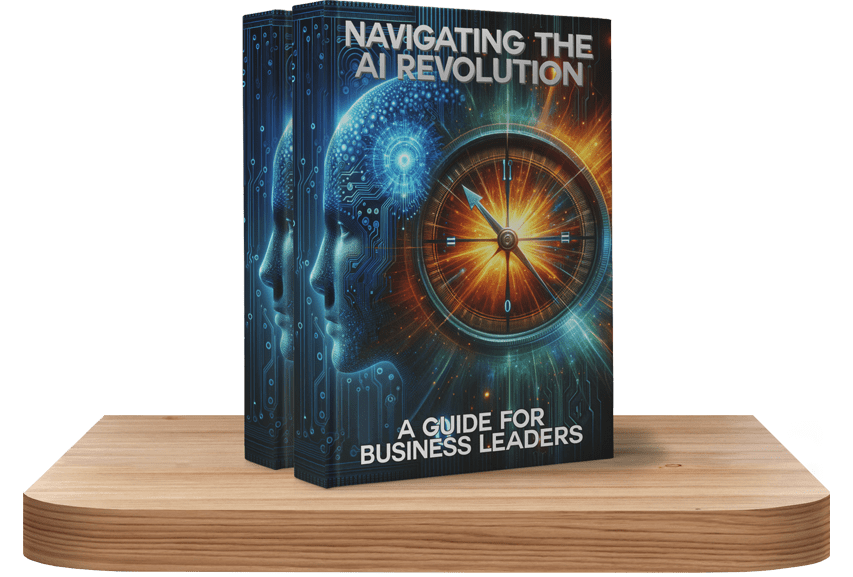In today’s fast-paced retail landscape, delivering exceptional customer service and maintaining operational efficiency are key to staying competitive. One of the most powerful tools available to retailers is the AI chatbot, a technology that is revolutionizing the way businesses interact with customers. AI chatbots are not just about automation—they are about enhancing the customer experience, offering instant support, and driving significant cost savings.
In fact, 67% of consumers already rely on AI chatbots for quick, efficient interactions, and 86% of them report positive experiences. As these intelligent systems handle up to 65% of customer interactions, retailers can focus on delivering a personalized experience without the strain on human resources.
In this article, we will explore how AI chatbots for the retail industry are transforming customer engagement, reducing operational costs, and driving sales. With the growing importance of AI technology in retail, understanding the full potential of AI chatbots is crucial for any business looking to succeed in this competitive market.
Enhancing Customer Engagement with AI Chatbots
Customer engagement is at the heart of the retail experience, and with the rise of AI chatbots for the retail industry, retailers can now offer faster, more personalized interactions that keep customers satisfied. One of the most valuable aspects of AI chatbots is their ability to provide 24/7 customer support, answering frequently asked questions, resolving issues, and guiding customers through their shopping journey at any time of day.
Studies show that 67% of consumers already use AI-powered chatbots for quick, efficient service, and 86% report positive experiences. This level of satisfaction is due to the speed and accuracy with which AI chatbots can handle inquiries. Whether it’s checking product availability, assisting with order tracking, or providing personalized recommendations, AI chatbots deliver the kind of real-time, on-demand service that today’s customers expect.
In fact, AI chatbots now handle 65% of customer interactions in many retail businesses, significantly reducing the need for human intervention in routine tasks. This allows customer service teams to focus on more complex or sensitive issues, improving overall service quality and efficiency. More importantly, AI chatbots help retailers engage with customers in a way that feels personal. By analyzing customer data and purchasing behavior, chatbots can make personalized product suggestions that enhance the shopping experience and increase sales conversion rates.
In an industry where competition is fierce, AI chatbots for the retail industry provide a competitive edge by transforming customer engagement. From personalized recommendations to instant support, they ensure that customers have a seamless, positive experience every time they interact with a business.
For retailers looking to stay ahead, adopting AI chatbots is no longer a question of if but when. By implementing these intelligent systems, retailers can build stronger relationships with their customers, boost satisfaction, and ultimately drive long-term success.
Improving Sales with AI Chatbots
One of the most compelling advantages of AI chatbots for the retail industry is their ability to directly impact sales. In an era where consumers expect seamless and personalized shopping experiences, AI chatbots are playing an increasingly vital role in helping retailers boost revenue through targeted, intelligent interactions.
AI chatbots excel at providing personalized recommendations based on customer behavior, purchase history, and preferences. By analyzing data in real-time, these chatbots can suggest complementary products, upsell higher-value items, and guide customers through the purchase process. This personalized approach not only enhances the customer experience but also increases the likelihood of conversion, driving higher sales for retailers.
Recent data shows that 50% of companies are increasing their budgets for chatbots due to their effectiveness in improving customer service and sales. AI chatbots can seamlessly assist customers during the decision-making process, answering product-related questions and providing tailored advice to help customers make informed purchases. Whether it’s recommending the perfect accessory to complement an outfit or guiding a customer through complex product features, chatbots deliver the kind of personalized service that traditionally only human salespeople could offer.
In addition to assisting with real-time customer inquiries, AI chatbots also play a crucial role in post-purchase engagement. After a sale is completed, chatbots can send follow-up messages, confirm delivery details, and even suggest related products that customers may be interested in, driving repeat purchases and fostering long-term customer loyalty. This continuous engagement ensures that customers remain connected to the brand, encouraging them to return for future purchases.
AI chatbots are particularly valuable in omnichannel retail environments, where customers often interact with a brand through multiple touchpoints—online, in-store, or via mobile apps. Chatbots provide a consistent, integrated experience across all channels, allowing customers to move seamlessly between them without any disruption in service. This unified approach not only improves the customer experience but also enables retailers to capture more sales opportunities by being present at every stage of the customer journey.
In conclusion, AI chatbots for the retail industry are not just tools for automating customer service—they are essential drivers of sales growth. By offering personalized recommendations, guiding customers through the purchasing process, and ensuring continuous engagement, AI chatbots help retailers increase revenue and improve overall business performance. As AI technology continues to advance, the role of chatbots in driving sales will only become more significant, making them a critical component of any forward-thinking retail strategy.
Future Trends: The Evolution of AI Chatbots in Retail
As AI technology continues to evolve, the role of AI chatbots for the retail industry is set to expand in ways that will redefine how businesses engage with their customers. AI chatbots are no longer just tools for answering simple queries—they are becoming sophisticated systems capable of transforming entire retail ecosystems by leveraging advancements in natural language processing (NLP) and machine learning.
In the near future, AI chatbots will be even more intelligent, capable of understanding nuanced customer preferences and behaviors. For instance, these chatbots will anticipate customer needs before they even ask, offering product suggestions based on previous purchases, browsing history, and real-time data. This predictive power will turn chatbots into proactive assistants, further enhancing the personalized shopping experience that customers crave.
As AI chatbots for the retail industry become more deeply integrated into omnichannel retail strategies, they will play a pivotal role in bridging the gap between physical and digital shopping environments. Imagine walking into a brick-and-mortar store and receiving personalized product recommendations on your mobile device, powered by the same AI chatbot that assisted you online. This seamless blending of in-store and online experiences will create a unified customer journey, making shopping more convenient, engaging, and ultimately more profitable for retailers.
Another major trend will be the growing use of voice-activated AI chatbots in retail. With advancements in voice recognition technology, customers will increasingly interact with retail chatbots through smart speakers, mobile apps, and even in-store kiosks. This will create an entirely new way for consumers to shop, allowing them to make purchases, check order statuses, or ask product-related questions, all through natural voice commands. Retailers who embrace this trend will be able to engage customers in more meaningful, frictionless ways.
Looking further ahead, AI chatbots will become even more autonomous, capable of handling more complex customer service scenarios without human intervention. With the ability to handle higher-order decision-making, such as resolving customer complaints or negotiating returns, these advanced chatbots will free up human agents to focus on higher-value tasks, improving operational efficiency and customer satisfaction simultaneously.
The future of AI chatbots for the retail industry is filled with exciting possibilities. As AI continues to advance, retailers who invest in these technologies will be able to offer more personalized, efficient, and engaging shopping experiences. Ultimately, embracing the evolution of AI chatbots will not only enhance the customer experience but also drive long-term growth and success in an increasingly competitive retail landscape.
By staying ahead of these trends, businesses can ensure they remain at the cutting edge of the retail industry, just as savvy companies today are leveraging AI to power everything from customer interactions to project management—using technology to shape the future.
Conclusion
AI chatbots are transforming the retail industry, offering powerful solutions for enhancing customer engagement, reducing operational costs, and driving sales. By embracing AI chatbots for the retail industry, retailers can provide personalized, 24/7 support that improves the shopping experience and boosts customer loyalty. As AI technology continues to evolve, chatbots will play an even greater role in shaping the future of retail, creating seamless omnichannel experiences and driving growth. For any retailer looking to stay competitive, adopting AI chatbots is no longer optional—it’s essential for success in the digital age.
Unlock the Power of AI: Download Your Free eBook and Transform Your Business Today!


